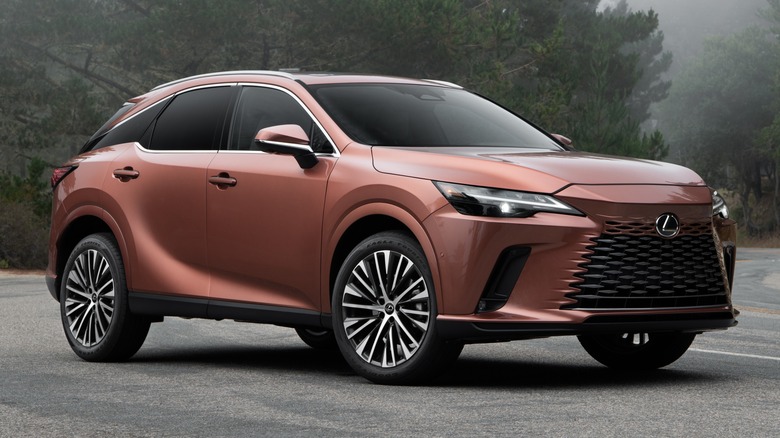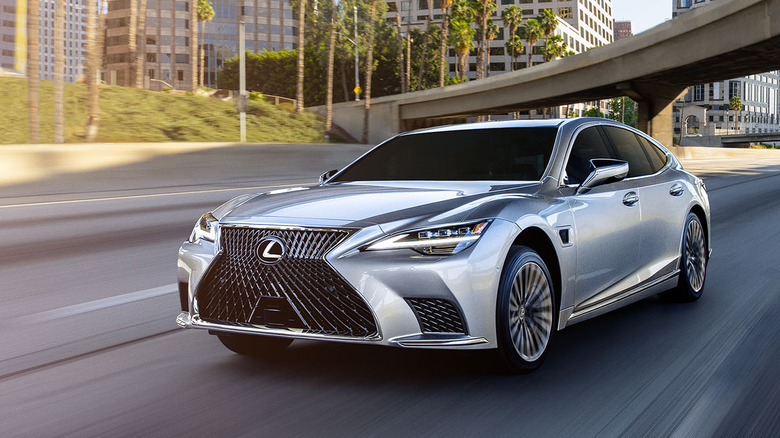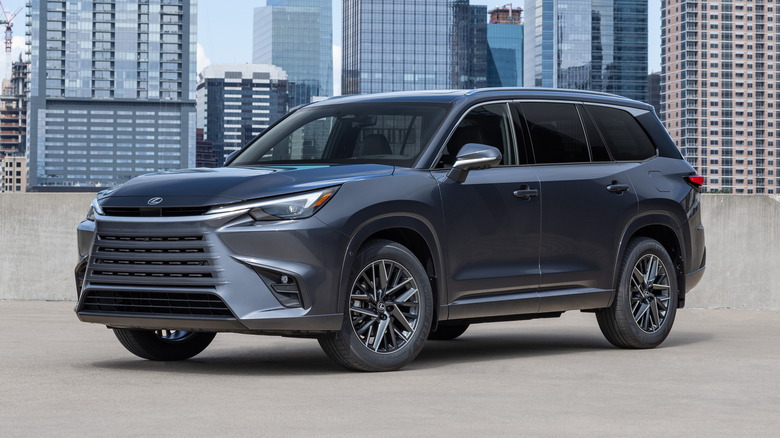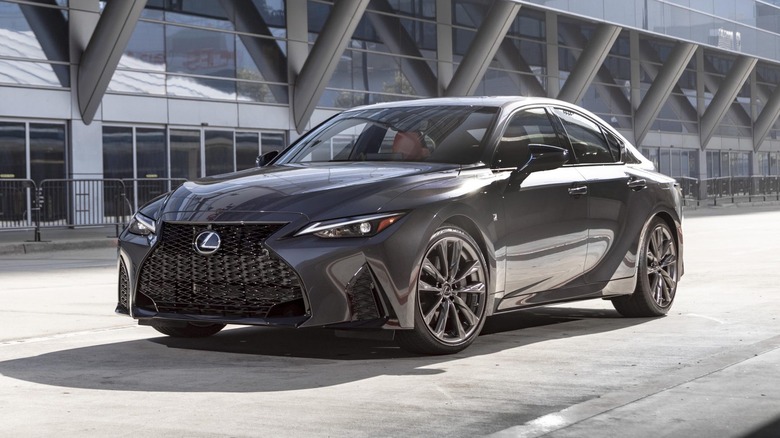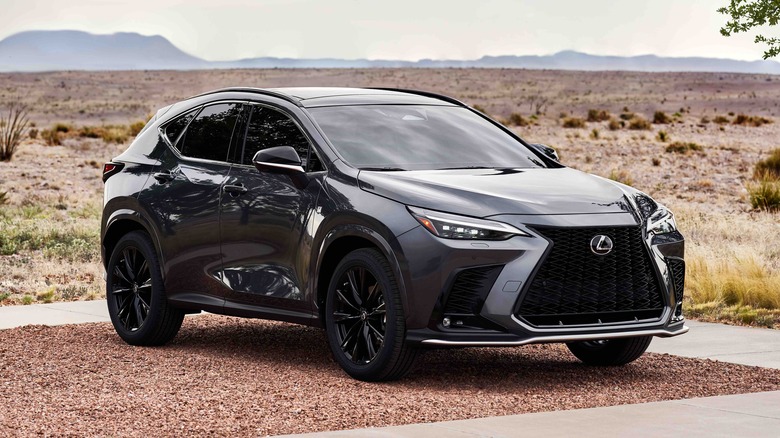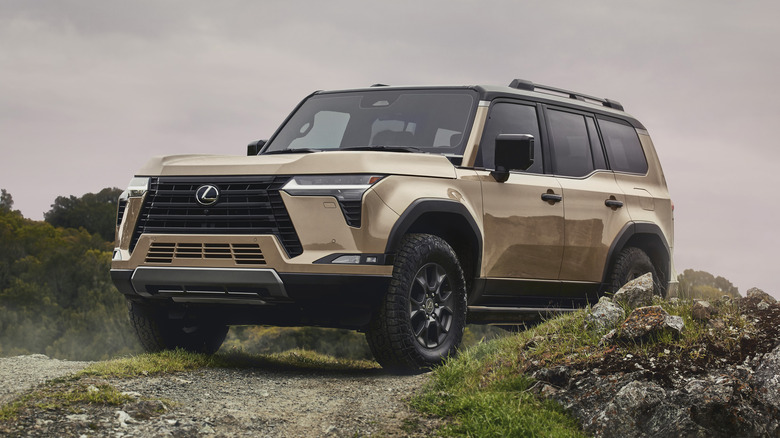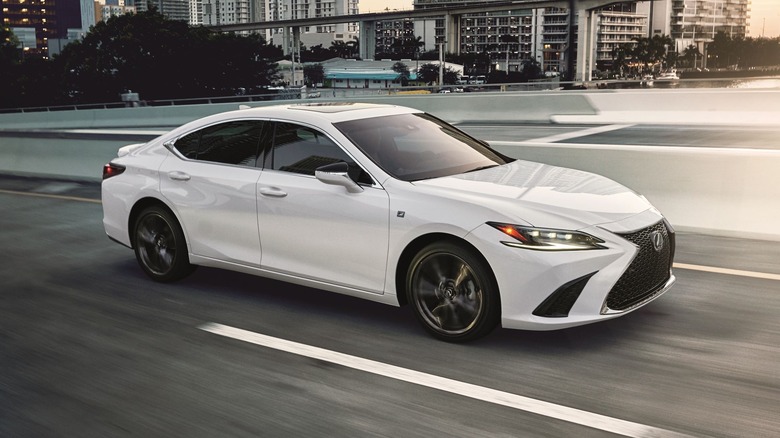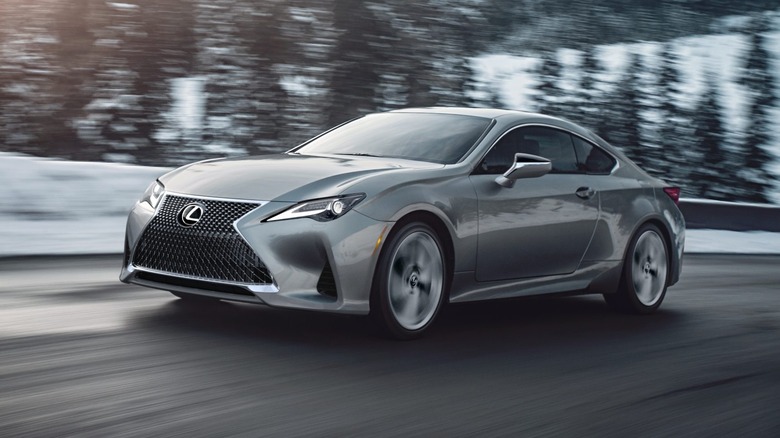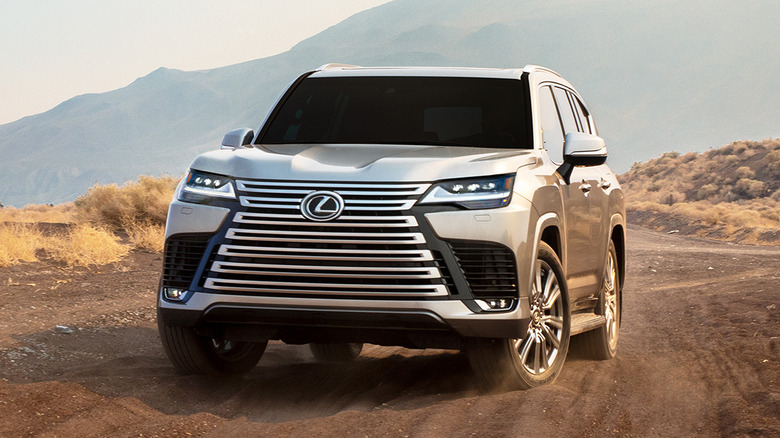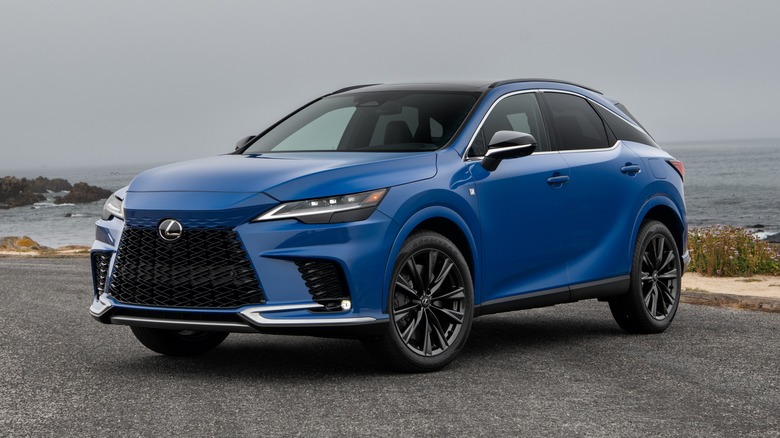9 Lexus Models With Great Resale Value
New cars inevitably lose value as they get older, but some lose value much quicker than others. The worst offenders for depreciation hail from a wide range of manufacturers, from Buick to BMW, but Lexus is notably absent from the list. In fact, many of the Japanese brand's cars depreciate slower than the market average, with most of its current models predicted to hold value better than their rivals.
According to data from KBB, the average five-year-old car can expect to retain 42.4% of its original sticker price. Lexus currently has nine models in its lineup that exceed that average figure, including a wide range of body styles from family-oriented SUVs to sporty coupes. The brand competes across a variety of price brackets, too, so whether you have six figures to spend or are looking for an attainable entry-level premium car, Lexus has something in its range that will hold its value well when it comes time to upgrade.
Lexus LS – 42.6%
Luxury sedans are notorious for their rapid depreciation levels, with the Mercedes S-Class, Audi A8, and BMW 7 Series all frequently featuring on the lists of most rapidly depreciating cars. The Lexus LS bucks the trend, since it's forecast to retain 42.6% of its value after five years on the road according to KBB. That puts it marginally above the overall market average, although still one of the poorest performers in Lexus' current lineup.
SlashGear spent some time with the Lexus LS500 earlier in 2024 and found it to be refreshingly focused on quiet, understated luxury. It lacks the high-tech, flashy interior of some of its rivals, but its cabin is still comfortable, attractive, and suitably upscale. It works best as a laid-back cruiser, much like earlier generations, leaving autobahn storming firmly to the Germans. In hybrid form, it's the most expensive vehicle in the current Lexus lineup, with a starting price well north of $100,000. However, for those who can justify the investment, there's a lot to like, not least its superior value retention over its competition.
Lexus TX – 42.9%
Based on the platform of the Toyota Grand Highlander, the three-row Lexus TX is a recent addition to the brand's lineup and replaces the RX-L. It offers much the same appeal as the Grand Highlander — enough space that even third row passengers won't feel cramped, hybrid options for improved efficiency, and a generous warranty for the whole package — but with a more upscale interior than the Toyota. The cabin of SlashGear's tester was suitably luxe, with leather seats and an optional Mark Levinson audio system, but buyers pay for the upgrades.
The TX can reach a sticker of over $80,000 in its top-spec trims, but at least buyers can expect their high-end SUVs to hold onto their value well over time. According to KBB, the TX should retain 42.9% of its sticker price after half a decade on the road. For a luxury SUV, that's a competitive figure, although it's still a way off the retention rates that Lexus' best performing models — and indeed its best performing SUV — can offer.
Lexus IS – 43.9%
In stark comparison to the fresh-faced TX, the IS sedan is a veteran model by modern standards. The current generation has been on sale for around a decade, and even the glorious V8 engine that's available in the IS 500 F Sport Performance can't fully make up for the car's aging cabin and indecisive transmission. For better or for worse, it's an old-school V8 sedan in modern clothing, at least in top spec. Lower spec models make do with a 2.0L turbo-four.
There are certainly more modern and refined sporty sedans on the market, but few hold their value as well as the Lexus. According to KBB, the IS should retain 43.9% of its original value after five years. Buyers looking for greater luxury and refinement could step up to the larger ES sedan, and the latter holds its value even better than the IS to boot. However, the ES lacks the memorability and performance of the V8-powered IS, even if it's the superior cruiser.
Lexus NX – 44.9%
The Lexus NX is available in multiple levels of electrification: the NX 350h is a mild hybrid that offers improved efficiency without the need for charger access, while those with deeper wallets could splash out for the plug-in hybrid NX 450h+. There is also a gas-only powertrain offered for those who won't or can't justify the price premium that comes with electrification.
Both inside and out, the NX is typical Lexus fare, and should feel familiar to existing Lexus owners. The cabin is comfortable and can be optioned with luxurious extras, with the car feeling geared more towards cruising than performance even in its more potent trims.
It's a smaller and slightly more affordable alternative to the bestselling RX, although it doesn't hold its value quite as well as its larger sibling over the long run. The NX should retain 44.9% of its value according to the latest figures from KBB, making this mid-range SUV also a middling performer for value retention compared to Lexus' other models.
Lexus GX – 46.2%
With a predicted value retention of 46.2% of its original sticker price after five years, per KBB, the recently updated Lexus GX is a strong performer for its segment. However, that's not why most buyers will purchase one. Instead, they're likely to be won over by the car's combination of genuine all-terrain capability, Lexus reliability, and premium features. The new generation GX was a long time coming, but it delivers on all the key elements that buyers expect from the car.
There's no GX hybrid available, at least not for now — instead, a 3.4L twin-turbo V6 is the sole power plant offered. Buyers can pick from a range of trims that emphasize either off-road chops or luxury, but all trims come with plenty of both. Unsurprisingly, this doesn't come cheap, with the base-spec GX starting around $65,000 and rising to more than $80,000 for the most luxurious trim. There are plenty of other luxury SUVs to consider at that price point, but few will make it as far off the asphalt without complaint.
Lexus ES – 47.4%
After putting the latest Lexus ES through its paces, SlashGear's verdict was that the car was simply "fine." It does a solid job of being a comfortable, refined cruiser, and in its upper trims, it's reasonably well equipped. However, it lacks anything to make it particularly special. In isolation, that's no bad thing, but when there are other sedans that offer more for a lesser upfront price, it becomes more of an issue.
Aside from the fact that there are more memorable sedans on the market — including two in Lexus' own lineup — the ES makes a decent case for itself as a middle ground for buyers who can't justify the price jump to the LS. There is one area where the ES comfortably beats the flagship LS, however, and that's in value retention. KBB predicts that a five year old ES will be worth 47.4% of its original sticker price, which puts it roughly five percentage points ahead of the pricier car.
Lexus RC – 47.9%
Buyers looking for a Lexus coupe get two choices in the brand's current lineup. The LC is by far the more expensive choice upfront, and with an estimated value retention of 38.5% over five years, it's also costlier in the long run. The RC, in contrast, is both cheaper and holds its value better. Data from KBB estimates a 47.9% value retention rate over the same time period. It's worth noting that the two models don't compete for the same buyers: with the LC's six-figure asking price, buyers will almost certainly not be cross-shopping it with the RC, which can be had for under $50,000.
Still, it's worth considering what makes the cheaper coupe so much more attractive to used buyers than the LC. The car's base-spec 2.0L turbo-four engine won't set hearts aflutter, but the 3.5L V6 available in higher trims offers a competitive 311 horsepower. At the top of the RC range, the RC F cranks the potency up considerably, with 472 horsepower on offer from its 5.0L V8.
The latter power plant is certainly a rarity in a new car, and will almost certainly get even rarer in the future as Lexus and its rivals continue to ramp up their electrification plans. Whether that means the top-spec RC will hold its value even better in the future remains to be seen, but for now, 47.9% is already an impressive figure.
Lexus LX – 50.8%
Lexus' most expensive SUV might stretch well into six-figure territory in its most expensive trims, but it holds its value well. It's projected to hold 50.8% of its original sticker price after five years according to KBB, putting it on an equal level with bestselling SUVs like the Toyota RAV4 in percentage terms. Perhaps part of that can be put down to the LX's perceived longevity among buyers — it arrived in 2022 and shared a platform with the Toyota Land Cruiser, one of the most famously reliable SUVs on the market.
The LX, of course, is a different beast to the Land Cruiser. Whereas the Toyota puts its off-road capability front and center, the Lexus is first and foremost a luxury SUV, just one that is equally at home off the asphalt. The latest generation is both more powerful and more refined than its predecessor, with infotainment tech and safety equipment that's competitive with what else is on the market at its price point. It's not without its flaws — we weren't particularly keen on the optional 22-inch wheels, which made the ride noticeably less comfortable — but overall, the LX is arguably better than ever.
Lexus RX – 51.5%
The success of the original '90s Lexus RX helped define the blueprint for the modern crossover, and a quarter of a century later, it continues to be the brand's bestselling model. It's in high demand with used buyers too, as evidenced by its 51.5% value retention rate after five years on the road, per KBB data. That's the highest of any Lexus model, although it's a little short of the very best SUVs on the market.
It's significantly higher than the RX's smaller cousin, the Lexus NX, which offers a more stripped-back version of the Lexus luxury experience at a more affordable price point. For those who can justify the extra outlay, the RX is arguably the obvious choice of the two: it's roomier, more luxurious, particularly in its higher trims, and will retain a greater percentage of its sticker price when it comes time to upgrade.
That said, any of the top performing models listed here are strong candidates in their respective segments. Lexus achieved record global sales figures in 2023, and with such a wide range of competitive vehicles on offer in the brand's current lineup, it's not hard to see why.
